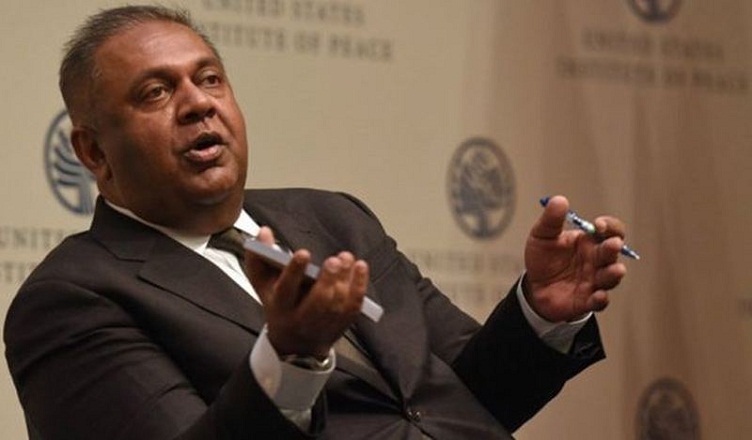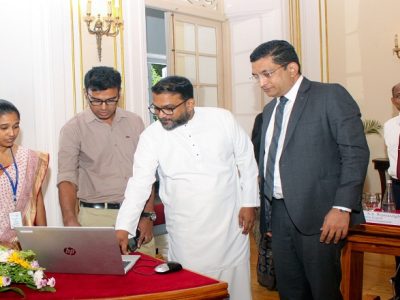(COLOMBO, LANKAPUVATH) –The Government expects to earn a revenue of Rs. 60 billion each year through the new Inland Revenue Act (IRA) which came into effect on Sunday (1), said Finance and Mass Media Ministry, Deputy Secretary, S.R. Attygalle yesterday.
This year, within the next two quarters he said he expected the government to rake in Rs 30 billion.
Finance Ministry officials together with Finance and Mass Media Minister Mangala Samaraweera and State Minister Eran Wickremaratne addressing a media briefing at the ministry strove to explain the misconceptions that have risen as a result of the new Act.
The Inland Revenue Act No 24 of 2017 passed on October of last year had sought to broaden the tax base, reduce the number of indirect taxes and simplify the overall tax structure, explained Minister Samaraweera.
In Malaysia, the percentage of tax revenue from direct taxes stands at 72 percent, in India the figure is at 54 percent, in South Korea at 45 percent, in Bangladesh 32 percent but in Sri Lanka the number stands at 18 percent.
“The aim is to increase this to 40 percent by 2020,” the Minister said.
At present, both the rich as well as poor pay the same amount of tax for their essential goods at a supermarket. A reduction in indirect taxes could change that.
The Joint Opposition (JO) however has stated that the new Act has actually increased the tax burden on the common man. The examples they cite mainly come from alleged taxes or increases in; migrant workers’ remittances, in the sale of land, in income tax and pensions.
The Minister thus explained that no tax would be levied on migrant workers remittances, income tax would only be liable to employees earning over Rs 100,000 a month and only pensioners who earn an interest of Rs 1.5 million a year or over would be subjected to a withholding tax of five percent on their interest.
Further, a capital gains tax is applicable on the gain derived from the sale of an extra land/house.
“For example, if you had an extra land which was valued at Rs 900,000 on 30 September 2017 and you sell it this year for Rs 1 million, that difference of Rs 100,000 will have a 10 percent tax imposed”, explained State Minister Wickremaratne.
The determination of the market value of such assets however would need a proper mechanism and the Minister said the Ministry would introduce one in future.
Responding to allegations from the Joint Opposition, Minister Samaraweera said they had also included suggestion and recommendations made by the JO in their bill and stated that the opposition now was all political.
“The Bill we got when we took over this Ministry had issues and we changed certain problematic areas. We had wider consultations from all political parties and the business community to prepare this”, said Minister Samaraweera. He believed that this was one of the most progressive in South Asia when it came to social justice.




